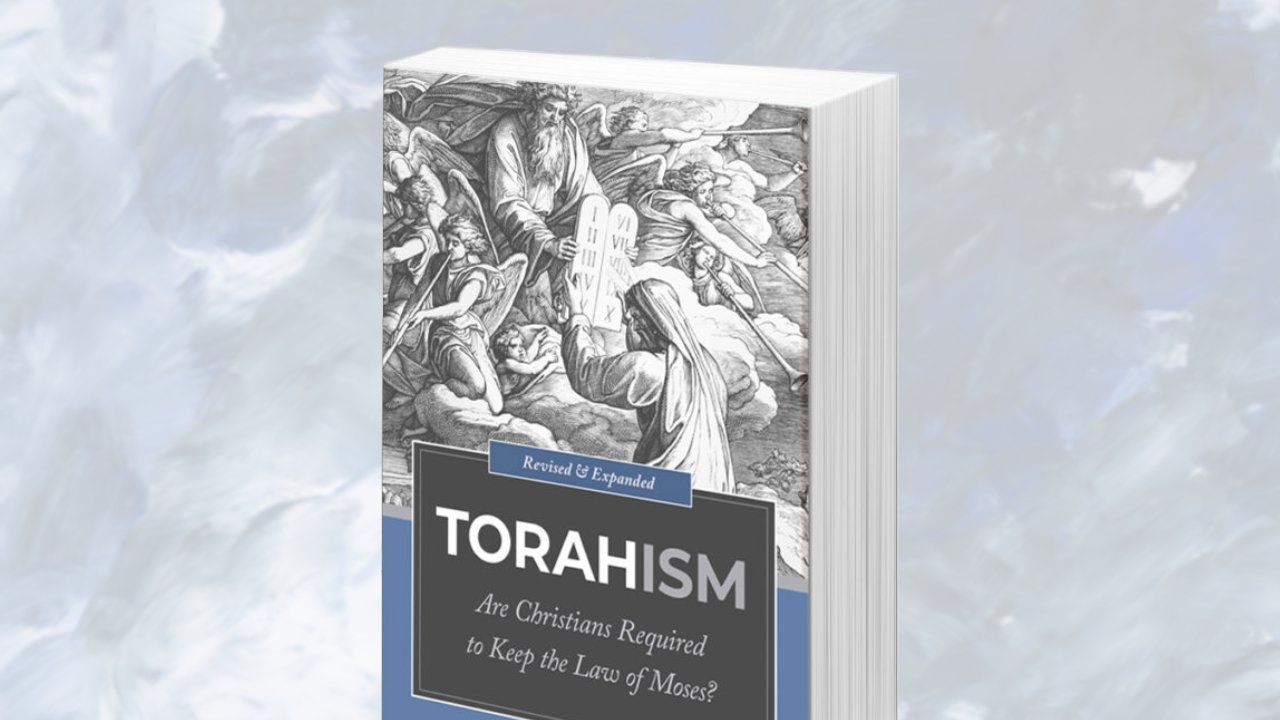
Editor’s note: This post originally appeared on davidwilber.me. Tabernacle of David considers this ministry trustworthy and Biblically sound.

Author: David Wilber
R. L. Solberg recently released the new edition of his book, Torahism, in which he attempts to refute the beliefs of “Pronomian” (Pro-law) Christians concerning the validity of God’s Law/Torah. I’ve read the previous edition of Solberg’s book and wasn’t persuaded by any of his arguments, so I was looking forward to seeing his new content to see if he had any worthwhile rebuttal to Pronomianism. I bought the book on Kindle yesterday, and I was surprised to discover that I was referenced several times. Initially, I was delighted to see Solberg referencing me in his book, thinking that he might provide a good challenge to my position. Unfortunately, in one place where he references me, I feel he mischaracterizes me. Here is what he says:
“The second big danger is that Torahism causes division in the body of Christ. It damages marriages, friendships, families, and even churches in two ways. First, Torah-observant Christians often make matters of keeping the Law of Moses a test of faith. They view these Mosaic traditions as required of Christians, not optional. Therefore, many Torahists look down on Christians who don’t keep the Saturday Sabbath or the kosher food laws, or who celebrate Easter or Christmas as living in sin. For example, in my debate with Hebrew Roots teacher David Wilber, he took the position that Christians who do not keep the Saturday Sabbath are living in sin and deserve the death penalty prescribed in the Torah.” (p. 43)
I am not a fan of this section of Solberg’s book. Let me explain.
First, Solberg cites me as an “example” of someone who “look[s] down on Christians” who don’t keep things like the Sabbath. This characterization of me is entirely inaccurate in light of my many teachings and interactions with other Christians that demonstrate the opposite to be the case. In fact, in my most recent book, Remember the Sabbath, I explicitly state, “All genuine Christians, whether they observe the Sabbath or not, are brothers and sisters. I do not believe it is right to divide from other genuine Christians over this issue…it is not our place to look down on other Christians who don’t observe the Sabbath…We are no better or more special than anyone else” (pp. 175-176). So, the fact that Solberg references me as an “example” of someone who looks down on other Christians is disappointing, to say the least.
Second, Solberg also references me as a “Hebrew Roots teacher.” I have publicly denounced this label numerous times and have explained why. Solberg’s use of this label would be somewhat understandable if it weren’t for the fact that I’ve already reached out to him directly about his use of this label for me in the past, where he apologized for using it and asked what I preferred. Why would he continue to use this label for me after I’ve already explained to him why I don’t identify with it? This would be like me lumping Solberg in with Oneness Pentecostals after he explicitly denounces Oneness Pentecostalism. (I mean, Solberg shares many beliefs in common with Oneness Pentecostals! He basically is one, right?) Labels matter, and I suspect that’s precisely the point: Solberg is attempting to discredit me by labeling me a “Hebrew Roots teacher.”
Third, Solberg’s description of my “position” on the Torah’s death penalty prescriptions is vague and misleading. He seems to be trying to give the impression that I want to stone Christian Sabbath-breakers. (Why wouldn’t I, right? After all, I apparently “look down on” all those wicked Christians who disagree with me.) He is going for “shock value” here, just like when he brought up this same point in our debate. But as I explained in our debate, the issue of the Torah’s death penalty prescriptions is more complex than Solberg makes it out to be. Also, there are many transgressions in the Torah that all Christians agree warrant the death penalty in ancient theocratic Israel (murder, sorcery, blasphemy, homosexuality). All I said was that the Torah prescribes the death penalty for breaking the Sabbath in ancient theocratic Israel, which is a point that even Solberg agrees with since it was the premise of his question to me in our debate. But as I explained in our debate, I don’t believe anyone should be punished for breaking the Sabbath today. As I explain in this video, I don’t even think it happened in ancient Israel (besides Numbers 15, an exceptional case).
In a footnote, Solberg does mention that I believe the death penalties prescribed in the Torah “cannot be carried out today.” Still, he misrepresents me and misleads his readers by not properly explaining the nuances of my position and by specifically referencing it in the context of “Torahists” looking down on Christians. Solberg is smart and presents himself as thoughtful and well-spoken, so it is difficult for me to imagine he was just being sloppy when he wrote what he did the way he did.
Concerning the issue of “Torahists” thinking that Christians who don’t keep the Sabbath are “living in sin,” again, the issue is more complex. Yes, breaking the Sabbath is a sin. But there are different types of sins. There are sins of ignorance, sinning with a “high hand” (defiant sin), etc. Most Christians who don’t keep the Sabbath today are sinning in ignorance, either because they haven’t looked into it or they’ve genuinely been convinced through their reading of the Scriptures that it isn’t required. Most “Torahists” don’t look down on such Christians, and we recognize that they love God with all their heart and desire to please him and obey him in what they believe to be true. Indeed, many non-Pronomian Christians I know are more “Torah Observant” in other ways than some Pronomian Christians I know! When my friend Xavier made this exact point to Solberg in a Podcast discussion in January, and explicitly stated “We don’t think of [Christians who don’t keep the Sabbath] as any less of believers,” Solberg acknowledged these distinctions and agreed that there has always been a problem of ignorance with fallen humanity. It is strange that he didn’t acknowledge that in this new edition of his book. Again, Solberg seems to be mischaracterizing his opponents to try to give the impression that Pronomian Christians look down on those who disagree with them as wicked rebels.
Solberg complains about Pronomian theology causing “division” in the body. However, mischaracterizations like this are what actually undermine the unity that should be shared among thoughtful Christians on all sides of this debate. Too often, Pronomian Christians are the ones who are looked down upon by their Christian brothers. We are the ones who often have our salvation questioned merely because we believe in keeping a few extra commandments. We are the ones often mislabeled and misrepresented. ALL of us on all sides need to do better. I hope that Solberg will correct this mistake as a good faith effort to demonstrate his commitment to Christian unity.
About David Wilber

David is first and foremost a passionate follower of Yeshua the Messiah. He is also a writer, speaker, and teacher.
David’s heart is to minister to God’s people by helping them rediscover the validity and blessing of God’s Torah and help prepare them to give an answer to anyone who asks about the hope within them (1 Peter 3:15)…

